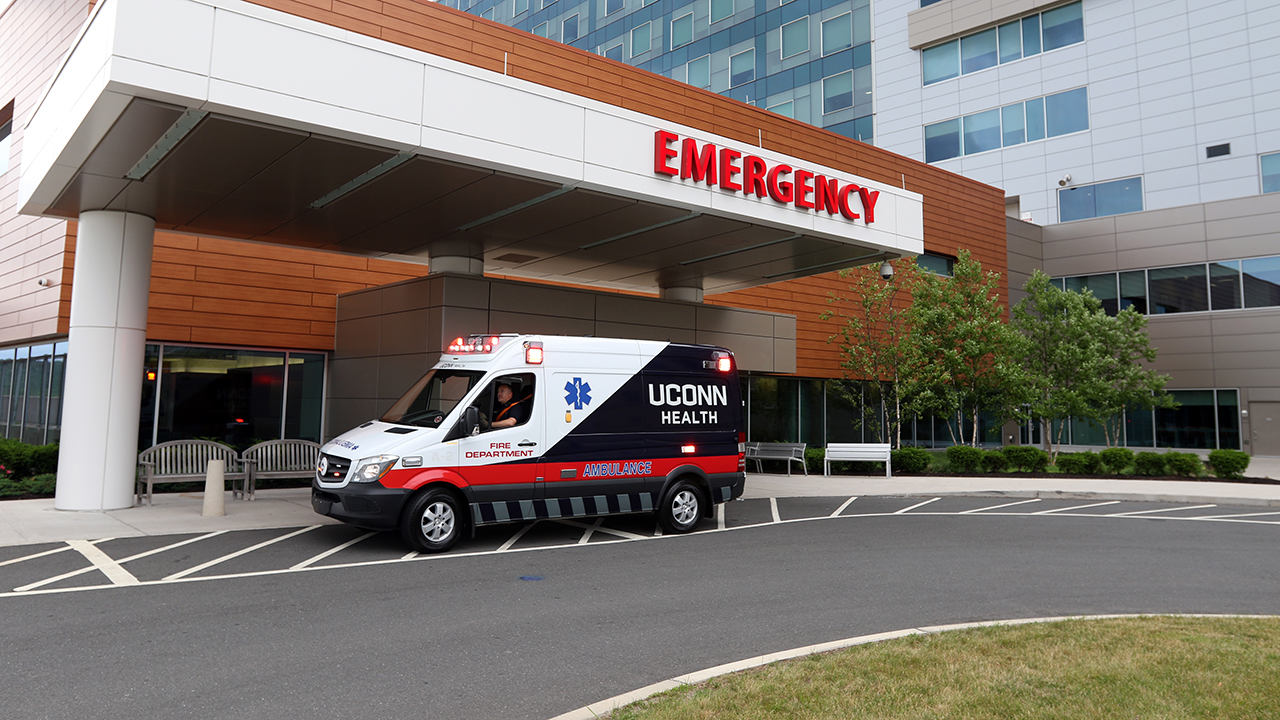
Emergency Care
If you have a health concern that develops after hours in general, urgent care clinics are a good alternative for mild symptoms that do not pose an immediate threat to your survival.
At UConn Health, we believe healthier communities make healthier people. By implementing strategic, innovative, and data-driven population health initiatives, we aim to improve the health outcomes of all our patients across Connecticut.
We work to improve the entire population’s health by addressing not only diseases and injuries but also the complex and interrelated factors that affect them. We examine how different factors can increase your risk of developing a health condition, reduce your access to healthcare resources, or worsen your health outcomes.
Our approach to population health is rooted in health promotion and disease prevention, improving access to care, and mitigating disparities. We strongly advocate for preventive care and emphasize the importance of regular screenings, check-ups, and patient counseling to prevent disease and disability.
At UConn Health, we know that socioeconomic factors such as place of birth and income levels can significantly affect your overall health, disease outcomes, and even life span. As a major academic medical center in the state, we devote time, effort, and resources to embracing diversity and assisting with this global problem.
We believe that all individuals, regardless of socioeconomic status, race, gender, sexuality, and other factors, must have the same opportunity to attain their highest level of health. We aim to reduce health inequalities, make our services available to everyone, and improve care coordination through equitable policies, programs, and resource allocation.
We are constantly working to develop evidence-based interventions that foster patient-centered, integrated care. All patients are treated holistically and individually — we believe that is the only way to provide effective, personalized healthcare.
UConn Health emphasizes the significance of prevention and health literacy. Our providers consider all aspects of your health simultaneously. We’ll help you understand your condition better and encourage you to make informed decisions about your treatment direction.
We base our population health initiatives on accurate and comprehensive data used to understand health trends, identify areas of concern, and assess the effectiveness of interventions. We use an evidence-based, data-driven approach to guide the development of strategies, programs, and initiatives.
At UConn Health, we know successful population health initiatives require collaboration among departments, organizations, and communities. Through strategic partnerships, we facilitate the meaningful exchange of knowledge, resources, and expertise. We work closely with community-based organizations to address patients’ health related social needs. Ultimately, this helps us improve outcomes for you and every community we serve.
Explore a depth of health resources and education available to the diverse communities and patient populations we serve.
At UConn Health we ask a variety of screening questions to identify and support health related social needs. As a patient, you may also see these screening questions via your MyChart as part of the check in process prior to your appointment. If the screening identifies a need, a referral will be sent to our population health social workers or community health specialist to perform an outreach call and provide you with community resources.
Health-related social need screenings include:
Additional women’s health screenings:
Transitional care management is a service provided by our experienced nurse navigators who focus on ensuring our patients have a smooth transition from a healthcare setting to home. The goal of transitional care management is to enhance patient outcomes by delivering high-quality patient-centered care. This approach is a vital component in reducing hospital readmissions and improving patient satisfaction.
Transitional care management services include:
Our clinical pharmacy program works collaboratively with your primary care health care team to manage chronic disease states such as diabetes and high blood pressure. Pharmacists can review your medications for safety, effectiveness, side effects, and drug interactions. The pharmacists also meet with patients face-to-face to help them better understand and manage their medications by providing education, answering questions, helping identify ways to save money on your prescriptions, reviewing medication instructions and counseling points, and implementing medications changes if needed.

If you have a health concern that develops after hours in general, urgent care clinics are a good alternative for mild symptoms that do not pose an immediate threat to your survival.

Tap into UConn Health’s wide range of services that promote well-being, belonging, community engagement, and a proactive approach to health care.

With many options and practices to choose from, our primary care providers focus on prevention, wellness, screening, and managing acute diseases and chronic conditions.